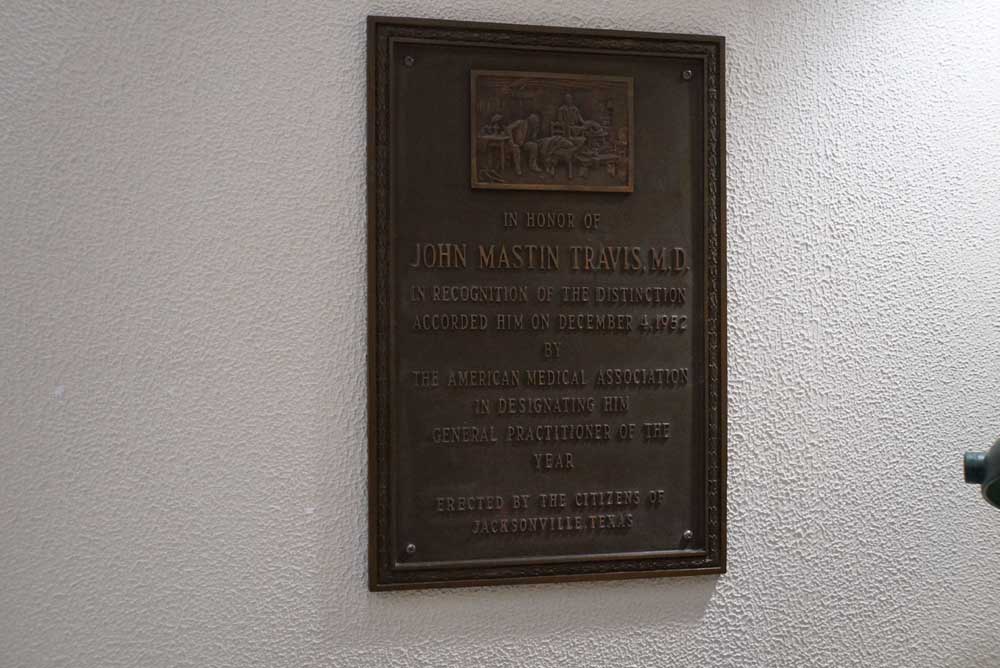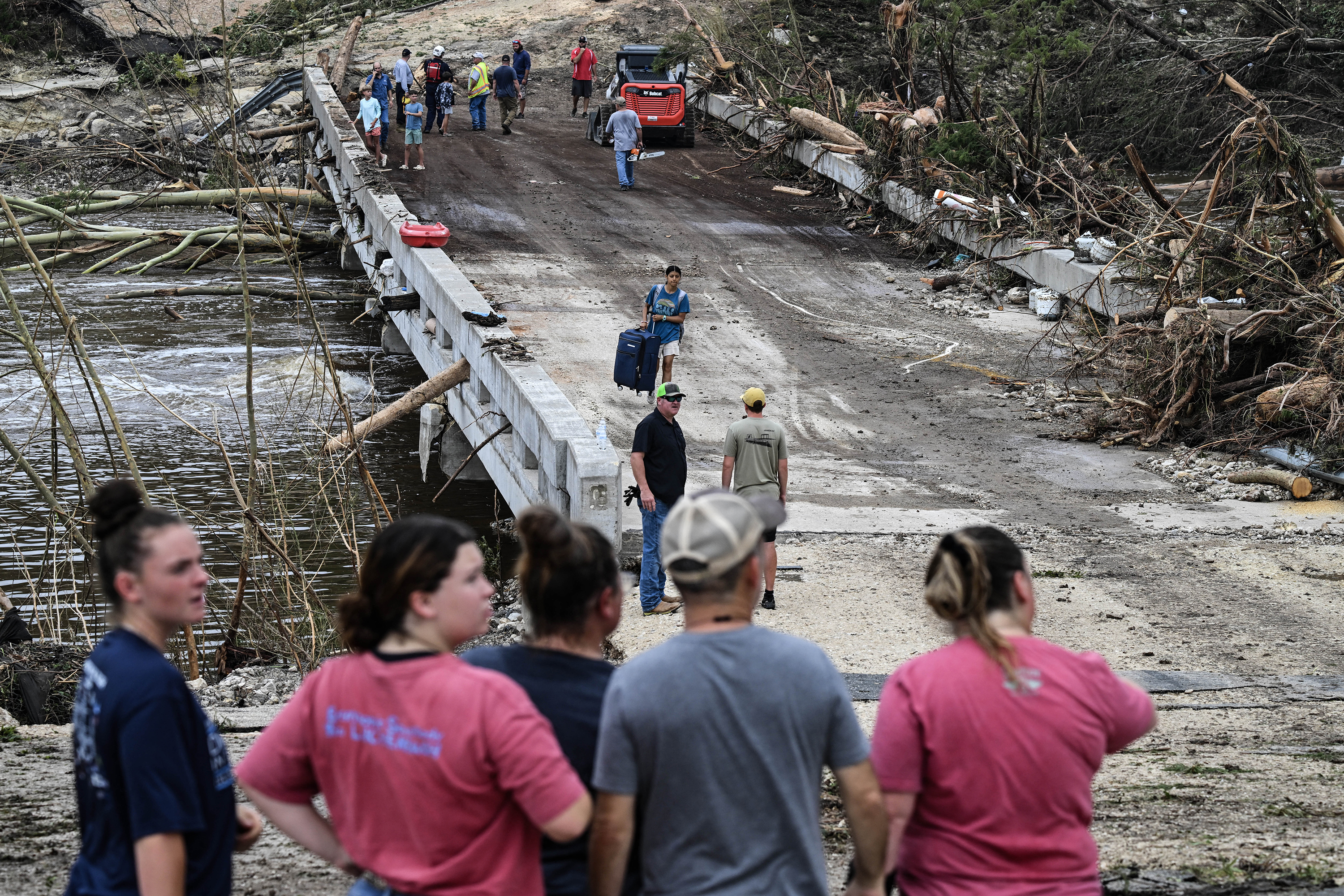UT Health Jacksonville celebrates 100 years, recognizes longtime physician
Published 2:30 pm Friday, November 8, 2019

- The family namesake of a UT Health Jacksonville predecessor, John M. Travis, is still recognized with a plaque in the entryway of UT Health Jacksonville, formerly Nan Travis Hospital. (Ben Fenton/Tyler Morning Telegraph)
UT Health Jacksonville celebrated its 100th anniversary last week with a reception for hospital staff and community leaders to honor octogenarian Dr. Mary Alice Bone, the oldest known living person who was born at UT Health Jacksonville.
Not only is Bone the oldest known living person born in the hospital, but her father, John N. Bone, was one of the four founders of UT Health’s predecessor, Cherokee Sanitarium.
“Actually, the year I was born, the hospital changed the name from Cherokee Sanitarium to Nan Travis (Memorial) Hospital,” says Bone.
She was born in 1930, and went on to work in the very location where she was born. She received her medical license in 1963.
The family namesake of Nan Travis is still recognized with a plaque in the entryway of UT Health Jacksonville today, honoring other hospital co-founder John M. Travis.
“Most of my work experience in the hospital was through the Nan Travis years,” Bone said at Thursday’s event. She retired from the hospital in the mid-’90s before Nan Travis merged with East Texas Medical Center, which was later bought by the UT Health System. Bone has practiced privately since her time at the hospital, and is still a very active member of the Jacksonville community.
“The celebration of 100 years of any hospital in our current day in time is amazing,” said UT Health Jacksonville CEO DeLeigh Haley, “but especially 100 years of a rural hospital in East Texas is almost unheard of.”
During the event, Haley presented Bone with a plaque.
“The role of the Bone family remains an integral part of history of our hospital,” CEO Haley said during the award presentation. “During its every stage of the past century, (the Bone) family has been represented and respected for (their) professionalism and service to patients here.”
Though she’s no longer working there, Bone still feels that part of her family’s legacy has endured with the hospital.
“The beautiful thing about this is that even with the name change, the concept of what the hospital was founded upon has remained stable,” Bone says. “It has continued to bless this community with, I think, really excellent medical care.”
When asked what the next 100 years would have in store, Haley responded: “Not only are we bringing up the next generation of health care workers, but we’re developing partnerships with MD Anderson and Hope Cancer Centers. Those kinds of things are going to bring technology and physicians and nurses to these rural communities that have never had those before. So it’s going to be an amazing next hundred years.”






